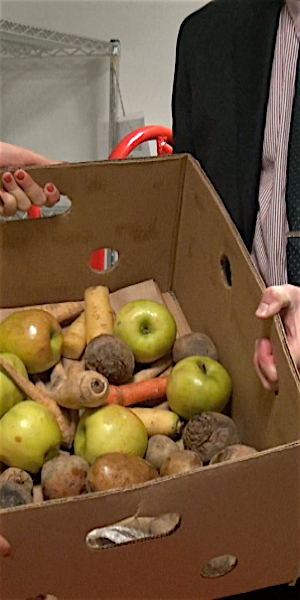We can help you take the next step!
The Center for EcoTechnology (CET) is building relationships in Colorado with stakeholders that are interested in addressing wasted food. With support from the Environmental Protection Agency (EPA), CET will evaluate and provide feedback on current and future food rescue and recovery efforts to improve food waste reduction and recovery in Denver
CET is exploring partnering on projects to increase the capacity to address this important issue in Colorado. To learn more about CET’s work in Colorado and to get involved, contact CET today at 888-813-8552 or e-mail wastedfood@cetonline.org.
Helpful Colorado Wasted Food Resources
- Denver Department of Public Health & Environment (DDPHE) Resources
- The Waste-Reduction Tips and Resources for Businesses webpage provides links to local food rescue organizations and information about the Food Matters Restaurant Challenge, a restaurant food waste reduction program created by Certifiably Green Denver in partnership with the DDPHE.
- These food donation resources from the DDPHE include information about food donations and safe food handling and food donation guidelines for licensed food facilities. This includes information about the Bill Emerson Good Samaritan Food Act passed in 1996.
- The Denver Food Action Plan details actions that will be taken by the city to increase food equity and to help advance the Denver Food Vision. The Denver Food Vision was created in 2017 establishing food-related goals, including reducing food waste, for the city.
- NRDC and Food Matters in Denver Resources
- The city of Denver was selected by Natural Resources Defense Council (NRDC) to be a model city for Food Matters, a project aimed to encourage food waste reduction through broad policies and programs.
- In the NDRC’s Strengthening Denver’s Food Rescue Ecosystem report an analysis was conducted that identified ways to improve Denver’s food rescue landscape. An additional report by NRDC, Modeling The Potential to Increase Food Rescue, discusses the opportunities to redirect foods to food-insecure individuals. According to their methodology, expanded food rescue efforts in the Denver area could fill 46 percent of Denver’s meal gap.
- Colorado Green Business Network
- The Colorado Green Business Network program helps Colorado businesses increase the efficiency and sustainability of their operations through assessments, networking, and recognition of excellence.
- Colorado’s Food Waste Policies
- The U.S. Food Waste Policy Finder by ReFED details Colorado’s current food waste prevention, rescue, and recycling policies. This includes Colorado labeling regulations, liability protection regulations, tax incentives, animal feed regulations, and organic waste recycling laws.
- Wasted Food Solutions for Denver, Colorado: Stakeholder Engagement and Initial Findings
-
With support from EPA Region 8, and in partnership with the Denver Department of Public Health & Environment (DDPHE), the Center for EcoTechnology developed a report on food donation activities at Denver restaurants. This report outlines current successes and opportunities to further food redistribution activities from this sector and provides recommended next steps to foster action.
-
Colorado Legal/Regulatory Requirements
- Every state has specific state-level legal and regulatory requirements regarding food waste and food donation. ReFED, a national food waste prevention nonprofit, created a searchable database of state-by-state food waste policies and regulations, in collaboration with the Harvard Food Law and Policy Clinic. View the Colorado food waste policy page for specific, up-to-date information about Colorado’s food waste laws.
- The Emerson Act
- The Federal Emerson Act (Public Law 104-210) protects donors from liability when donating to nonprofit organizations and protects donors from civil and criminal liability should the product, donated in good faith, later cause harm to the needy recipient.
Toolbox
For more information regarding food waste estimates, source separation guidance, and how to start a food donation program, open CET’s Toolbox.
TAKE THE NEXT STEP, CONTACT US!
Contact CET to learn more about food recovery and waste diversion opportunities for your business, institution, customers, or association members:
